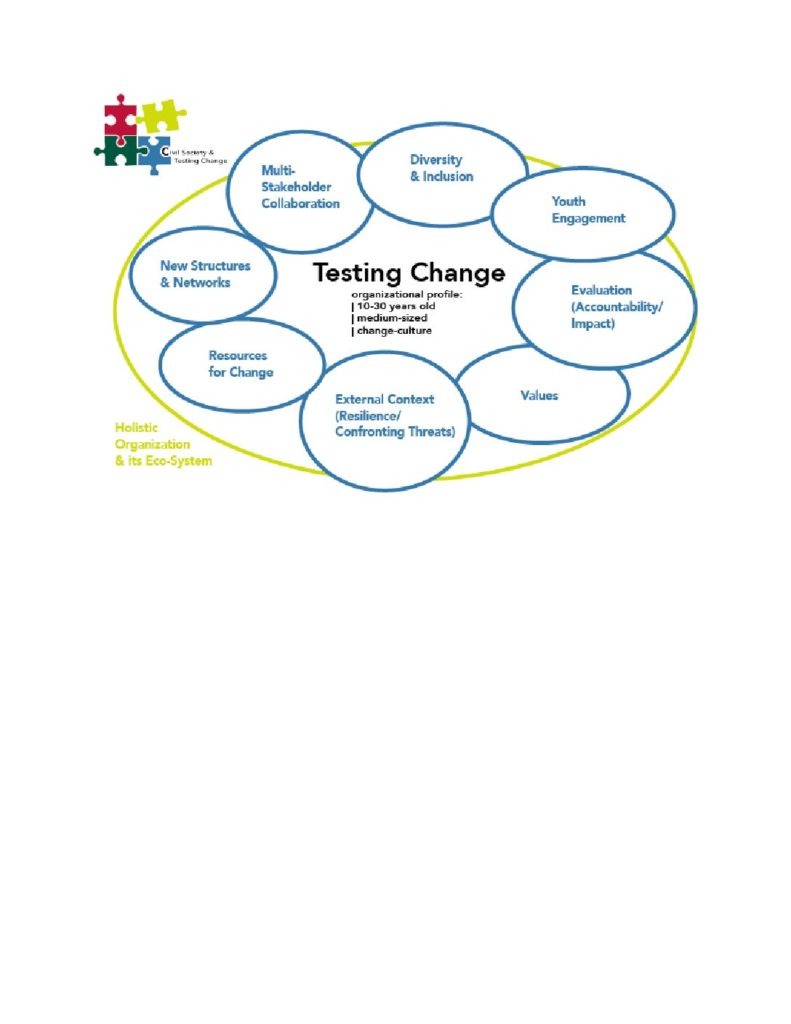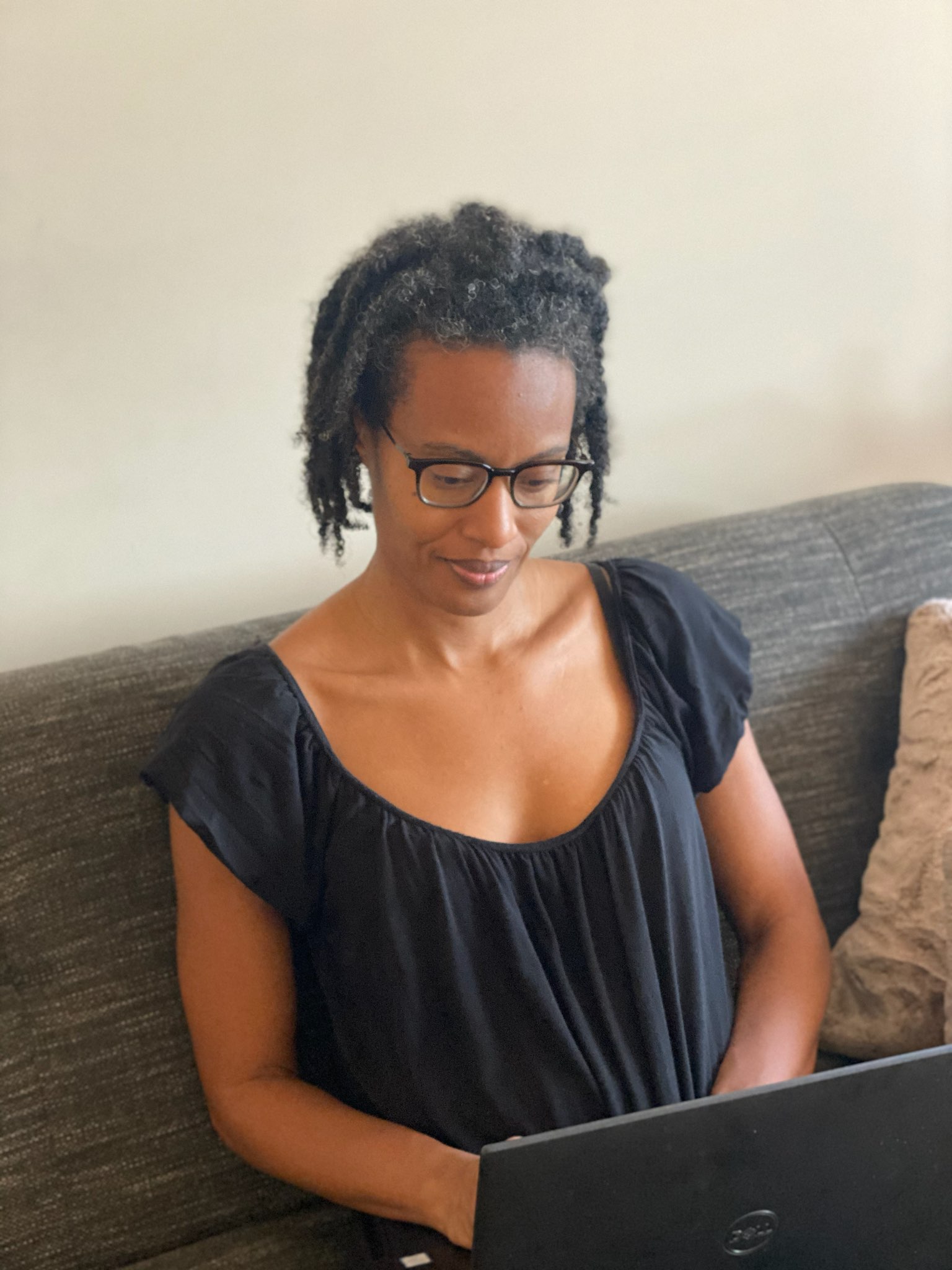
Loyce Pace, CEO
Global Health Council
We are living through a worldwide health crisis, an economic crisis, a racial crisis and a crisis of democracy. Anyone of them would test us, facing them all at once, for an indefinite time into the future, is going to take enormous amounts of our energy. We need to pace ourselves, find our allies and partners and ‘learn into’ the crisis. To help in the search for ‘actionable learning’ I wanted to share some of what we’ve been learning through the Testing Change project.
We started the Testing Change project six years ago in ‘mildly disruptive times’. The Testing Change project, through a global collaborative, designs and tests operational changes that are needed to keep organizations relevant while facing a daunting set of challenges. Now that the disruption is affecting everyone more directly, some of what have we learned over the past years might be helpful to others. This includes:
- Leadership for disruptive times
- Complexity to action
- Keeping the focus on paradigm change
- Challenge of multi-year commitments
Leadership for Disruptive Times
Learning your way through a crisis – who are your trusted sources for information? What information can you curate to be of most use to others? “Start where you are. Use what you have. Do what you can.” ~ Ekpedeme “Pamay” Bassey (Leadership in a Time of Crisis)
Some leadership challenges
- External events and even crises (like the current coronavirus one) call for leaders to try new approaches but it can be hard to go with your own instincts when you are trying something that may feel risky to your volunteer leadership.
- Our organizations are designed to reward continuity and not taking risks. Board members and other staff members may not want change and can have ‘subtle ways’ of rewarding leaders for continuing to do things the same way. What is needed for us take more risks as leaders?
What we are learning (or validating):
- Peer support – having others going through something similar who you can share ideas and concerns with, and help validate your ideas to others in your organizations, can be extremely helpful, even critical in disruptive times. Having that community to call upon can help to validate your own instincts (eg that a certain strategic direction should be followed) and ‘insulate’ you a bit from some of the failures, or ups and down, that might come from risk. Although we have an instinctive sense that having peer support is important, we are often too busy with the day to day to seek it out. Peer support has been one of the most important ‘value adds’ participants have identified from being involved with the global peer community of the Testing Change project.
- Make sure to stay authentic to yourself. It will help to guide you through situations where directions are not at all clear.
- Decide which battles are worth taking on and which to let go. “This is the change I can affect right now” – my piece of the puzzle.
- Take the time to read, share and keep learning. Now more than ever (and even though available time can feel scarce) you need to dedicate some time to your own learning in order to help your organization and others.
Complexity to Action
Our current social infrastructure and systems have not served us well, and disruptions like the pandemic can prove an opportunity to have our leaders think in new ways. Each of our organizations and our work is a piece in a broader puzzle. The time is opportune to encourage our organizations to see ourselves as part of a wider picture and how we can help influence its shift. Often the complexity can seem overwhelming or hard to translate to others in our leadership circle.
The Testing Change project started looking at the ecosystem in which NGOs operate as part of the project’s original design. The way society and many of our organizations are currently structured it is hard to keep the focus on the way challenges are interconnected: it’s not the way we have be trained and have practiced operating over the past decades and consequently issues can often feel ‘out of our lane’ and too ‘complex’
What we have tried/what we are learning:
We have tried to intentionally work on:
- Keeping senior staff engaged so the change work is fully integrated into the organization’s operations and doesn’t get siloed into the staff working on the ‘issue area’
- Linking the work of our different (issue specific) working groups so they, and a broader audience in the social sector, can see the learning and synergy that comes from this linkage. We are using the project’s Steering Group to help do this. It is an approach that focuses on modeling where we want to go and seeing change as a practice we need to intentionally work on.
Keeping the focus on paradigm change
We are looking for and testing ideas that will make transformational, paradigm change, not just incremental change. Paradigm change needs on-going practice to change our mind-sets and normal behavior patterns. This calls for strong leadership and may call for creative facilitation to encourage people to not fall into accustomed tracks but continually step off of them.
Changing the way an organization operates takes new structures and practice, just like practicing a sport or instrument. Trainings are important but board and staff need time and support to practice new approaches.
What we are learning
- We have been somewhat surprised at how easily all of us (even those of us who consider ourselves ‘change agents’) fall into these patterns and how important it is to be intentional about changing some of the patterns we have become accustomed to.
- Having ‘accountability buddies’ or working groups that can support each other can encourage the practice needed to internalize and implement new ways of operating.
Challenge of multi-year commitments
Some changes can be started right away like in-depth organizational conversations or making a commitment that you will do things differently. If you want to truly transform the way your organization operates, though – internally and externally- the leadership needs to be committed for the ‘long haul’. Organizations and networks that have been most successful with making significant changes, and most importantly increasing their impact due to these changes, understand that it is a long game, and plan for it to be a long term process. It is worth having discussions up front on a regular basis with your key stakeholders on progress that is being made, challenges you have faced, what is still needed, and how your organizational timeframes may need to be modified.
With the rate at which people change positions and jobs it is highly likely that some of those championing or shepherding change may move on while the change implementation is still in process. It is thus important to recognize this and have processes for smoothly allowing people to depart and bringing new people ‘up to speed’.
What we have learned
- We started the Testing Change project as a multi-year project knowing that the kind of changes we were creating and testing would take many years. We have tried to allow for organic cycles and our lead organizations to step away for short periods of time when other organizational priorities called for that.
- As people have changed positions or interests, we have changed our Testing Change Steering Group members over time, and two of the organizations involved in this project have changed their CEOs. We are learning that there needs to be an organization wide commitment so when the key champion leaves, the focus on change is not lost.
- Documenting project ‘memory’ and learning and having someone (or a couple of people) who are the custodians of that memory can help in ensuring smooth transitions.
Additional resources:
Recommended book: The Art of Quiet Influence
Thinking Like a Pilot through a Crisis
Leadership in Times of Covid-19
10 Leadership Principles for 2020
Translating Complexity into Manageable Action

